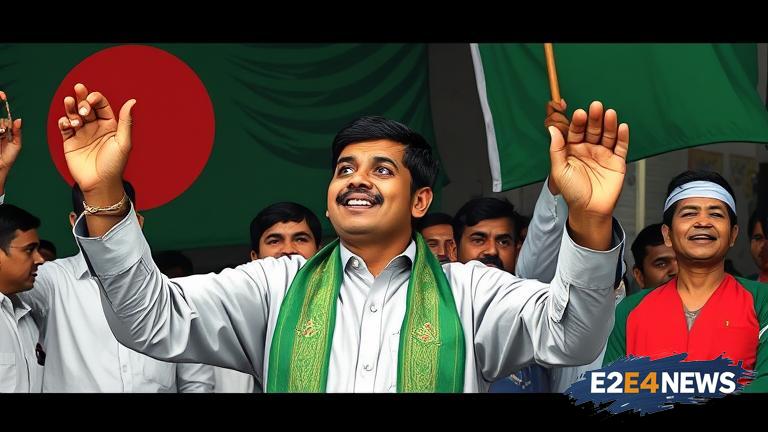Bangladesh’s interim leader, Muhammad Yunus, has set a February election date, marking a significant step towards a peaceful transition of power in the country. The announcement comes amid ongoing calls for reform and concerns over the country’s democratic process. The election is expected to take place on February 15, with all major parties participating. The move is seen as a positive step towards restoring democracy in Bangladesh, which has been plagued by political instability and violence in recent years. The country has been under an interim government since the resignation of the previous prime minister, and the election is expected to bring much-needed stability to the region. However, there are still concerns over the fairness and transparency of the electoral process, with some opposition parties expressing doubts over the neutrality of the election commission. Despite these concerns, the international community has welcomed the announcement, with many seeing it as a step in the right direction. The United States, the European Union, and other major powers have all expressed support for the election and called for a peaceful and transparent process. The election is also expected to have significant implications for the country’s economy, with many investors and businesses waiting for a stable government to be formed before making any major decisions. The current interim government has been criticized for its handling of the economy, with many accusing it of mismanaging the country’s finances and failing to address pressing issues such as poverty and corruption. The opposition parties have promised to address these issues if they come to power, and have outlined a range of policies aimed at stimulating economic growth and reducing inequality. However, the ruling party has also promised to continue its development agenda, and has accused the opposition of lacking a clear vision for the country’s future. The election campaign is expected to be intense, with all parties mobilizing their supporters and engaging in heated debates over the country’s future. The use of social media is also expected to play a major role in the campaign, with many parties using platforms such as Facebook and Twitter to reach out to voters and disseminate their message. Despite the challenges ahead, many Bangladeshis are optimistic about the future, and see the election as an opportunity for the country to move forward and address its many problems. The international community is also watching the election closely, and is urging all parties to respect the democratic process and ensure a peaceful transfer of power. In recent years, Bangladesh has made significant progress in areas such as economic development and human rights, but the country still faces many challenges, including poverty, corruption, and climate change. The election is seen as a crucial step towards addressing these challenges, and towards building a more stable and prosperous future for all Bangladeshis. The country’s civil society has also been actively engaged in the election process, with many organizations and activists working to promote voter awareness and education. The media has also played a crucial role in the election, with many outlets providing extensive coverage of the campaign and the issues at stake. Overall, the February election in Bangladesh is seen as a critical moment in the country’s history, and one that will have significant implications for its future. The international community is urging all parties to respect the democratic process and ensure a peaceful transfer of power, and is watching the election closely to ensure that it is free and fair.
